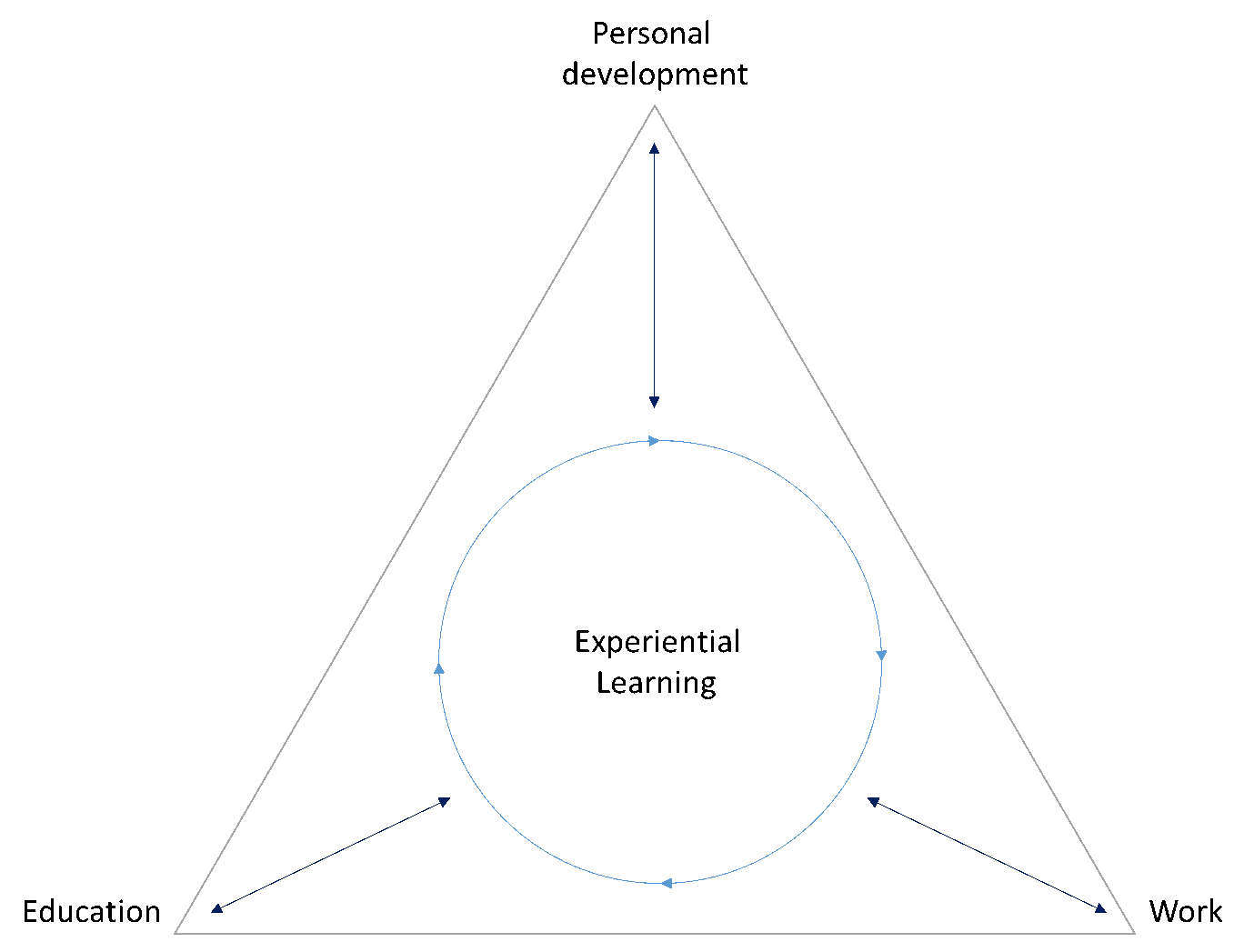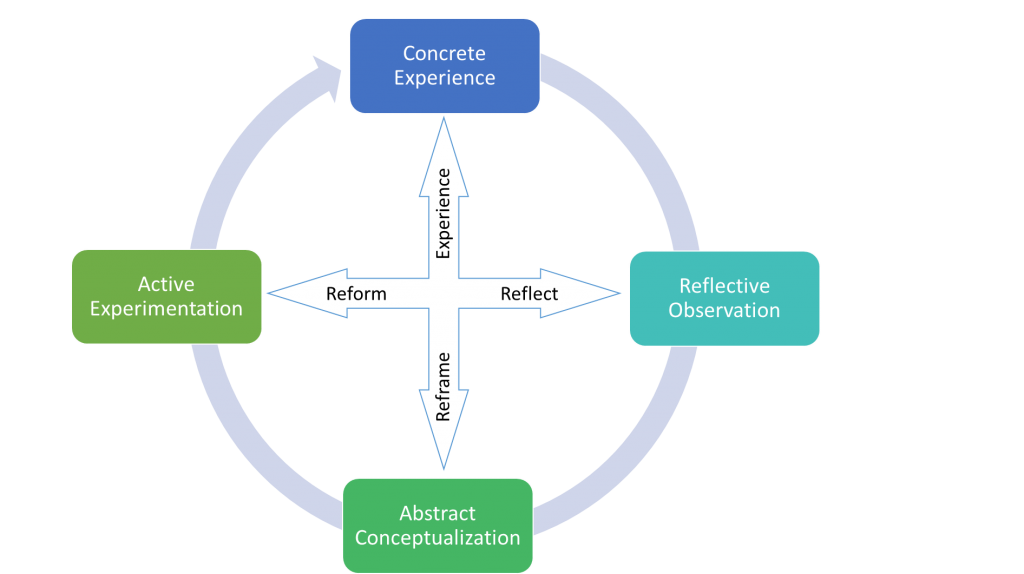I have been reading the work of David A. Kolb a seminal writer on the topic of experiential learning. Kolb is well known for his Experiential Learning Cycle which draws upon the works of John Dewey and Kurt Lewin.
Essentially the model proposes a theory of learning in which personal development occurs when a persons’ experience in the world is followed by critical reflections on the experience.

In the context of higher education, experiential learning offers a chance for students to link what they are learning to an experience in a workplace setting. A students experience reflecting on the linkage between higher education training and their workplace realities becomes a source for their own personal development (Kolb, 2014).
Kolbs Learning Cycle is useful lens for explaining how reflection may unfold. An individual starts by having a concrete experience in the world, perhaps in our case a work opportunity. They then move to reflective observation, in which they reflect on their experience, in our case through reflective writing exercises. An individual next moves to abstract conceptualization, at which point they consider what the experience means to them and their understanding of the world. At this point an individual may begin to seek more information or change their ways of knowing based on the experience. This re-framing should also come in the form of externalized reflection. An individual then, having changed their perspective on the world enters the active experimentation phase where they begin testing their new ways of thinking on the world.

Experiential Learning Cycle (Kolb, 2014)
Considering what types of questions we could use to prompt an individuals’ movement through the reflective learning cycle, a couple different ideas have emerged. Humphrey (2009) proposed a model which suggests reflection upon, reframing and reforming based on the experience. This is quite similar to the ‘what, so what, now what’ model, for which I can not find a definitive reference (the Liberating Structures site provided some guidance). The two models are similar enough to provide a basic template for reflection.
Reflect on the experience
Reflect on what happened during your experience? What did you notice most? What facts or observations stood out? How does this differ from your training and experience in class? What aspects of your training were most relevant to the experience on site?
Reframe the experience through critical reflection
Ask, so what? Why is that important? What patterns or conclusions are emerging? What hypotheses can you make about why this happened? What else could have happened?
Reform based on your reflection
Ask, now what? What actions or changes to your approach might make most sense now? What do I need to better prepare myself for an experience like this going forward?
Conclusion
These are just some initial ideas from the literature, please feel free to comment or suggest other models for consideration. I will next be looking at the existing reflection frameworks you provided and consider how we might pull those together into a template for CEL.
References
Humphrey, C. (2009). By the light of the tao. European Journal of Social Work, 12(3), 377-390. doi:10.1080/13691450902930779
Kolb, D. A. (2014). Experiential learning: Experience as the source of learning and development. FT press.
What, So What, Now What? W³. Liberating Structures: Including and Unleashing Everyone. Retrieved from http://www.liberatingstructures.com/9-what-so-what-now-what-w/
